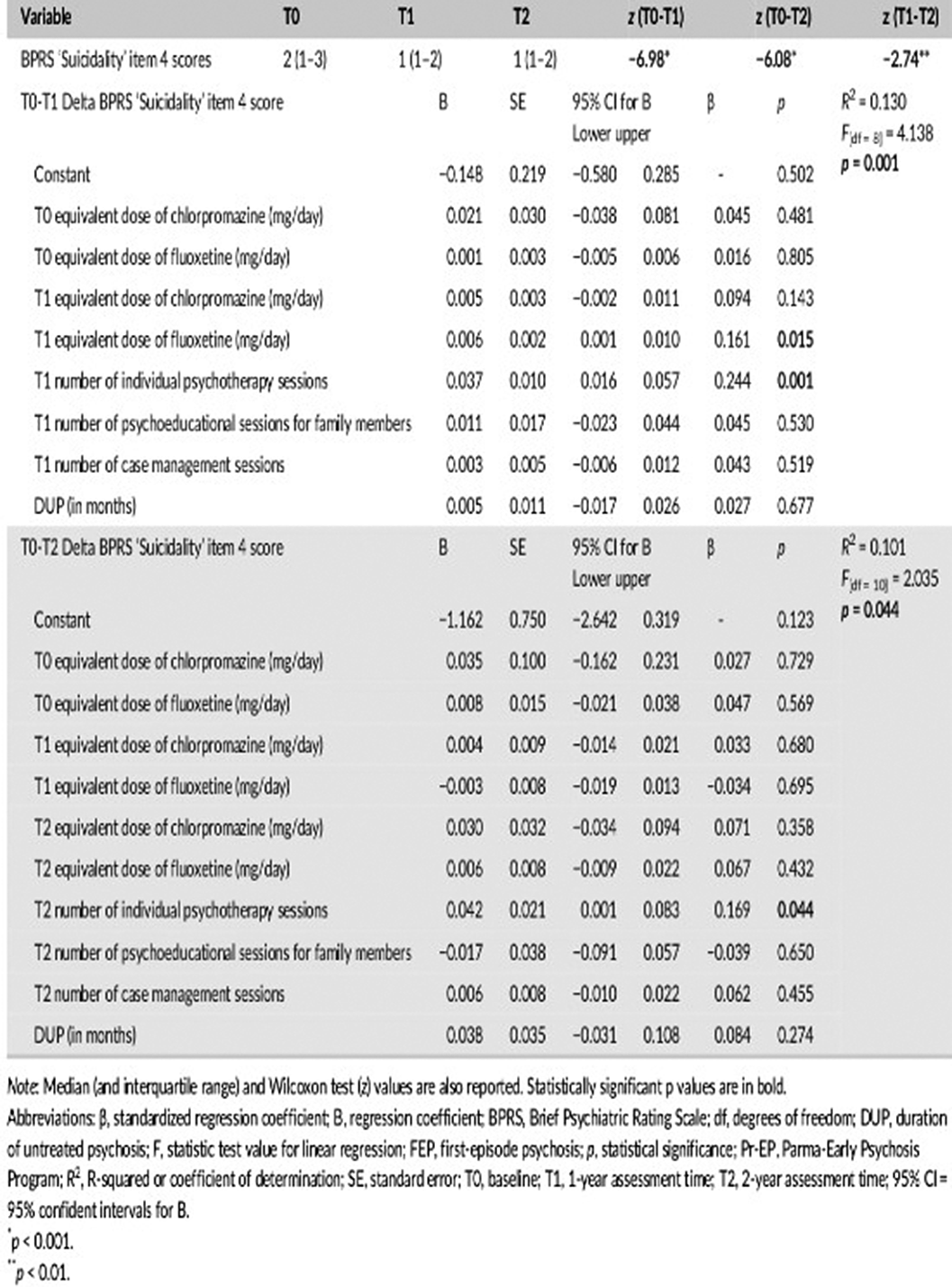No CrossRef data available.
Article contents
Individual psychotherapy may help to reduce suicidal ideation in first episode psychosis: results from a 2-year Italian follow-up study
Published online by Cambridge University Press: 19 July 2023
Abstract
Suicidal thinking is relevant in patients with First Episode Psychosis (FEP). However, longitudinal studies specifically examining treatment response for suicidal ideation in FEP are still relatively scarce, especially with long-term design and in real-world clinical settings.
The aims of this research were (A) to longitudinally assess suicidal thoughts in people with FEP along a 2-year follow-up period and (B) to overtime investigate any significant association of suicidal ideation levels with the specific treatment components of an ‘Early Intervention in Psychosis’ (EIP) protocol along the 2 years of follow-up.
At entry, 232 FEP participants (aged 12–35 years) completed the Brief Psychiatric Rating Scale (BPRS), including a ‘Suicidality’ item subscore. Multiple linear regression analysis was then performed.
Across the follow-up, FEP subjects showed a relevant decrease in suicidal thinking levels overtime. This was specifically predicted by the total number of individual psychotherapy sessions offered within the 2-year EIP protocol and antidepressant dose (at least as regards the first year of our intervention).
Image:

Suicidal ideation is clinically relevant in FEP but seems to improve overtime together with the provision of specific, patient-tailored and integrated EIP treatments, especially individual psychotherapy.
None Declared
- Type
- Abstract
- Information
- European Psychiatry , Volume 66 , Special Issue S1: Abstracts of the 31st European Congress of Psychiatry , March 2023 , pp. S563
- Creative Commons
- This is an Open Access article, distributed under the terms of the Creative Commons Attribution licence (https://creativecommons.org/licenses/by/4.0/), which permits unrestricted re-use, distribution, and reproduction in any medium, provided the original work is properly cited.
- Copyright
- © The Author(s), 2023. Published by Cambridge University Press on behalf of the European Psychiatric Association



Comments
No Comments have been published for this article.